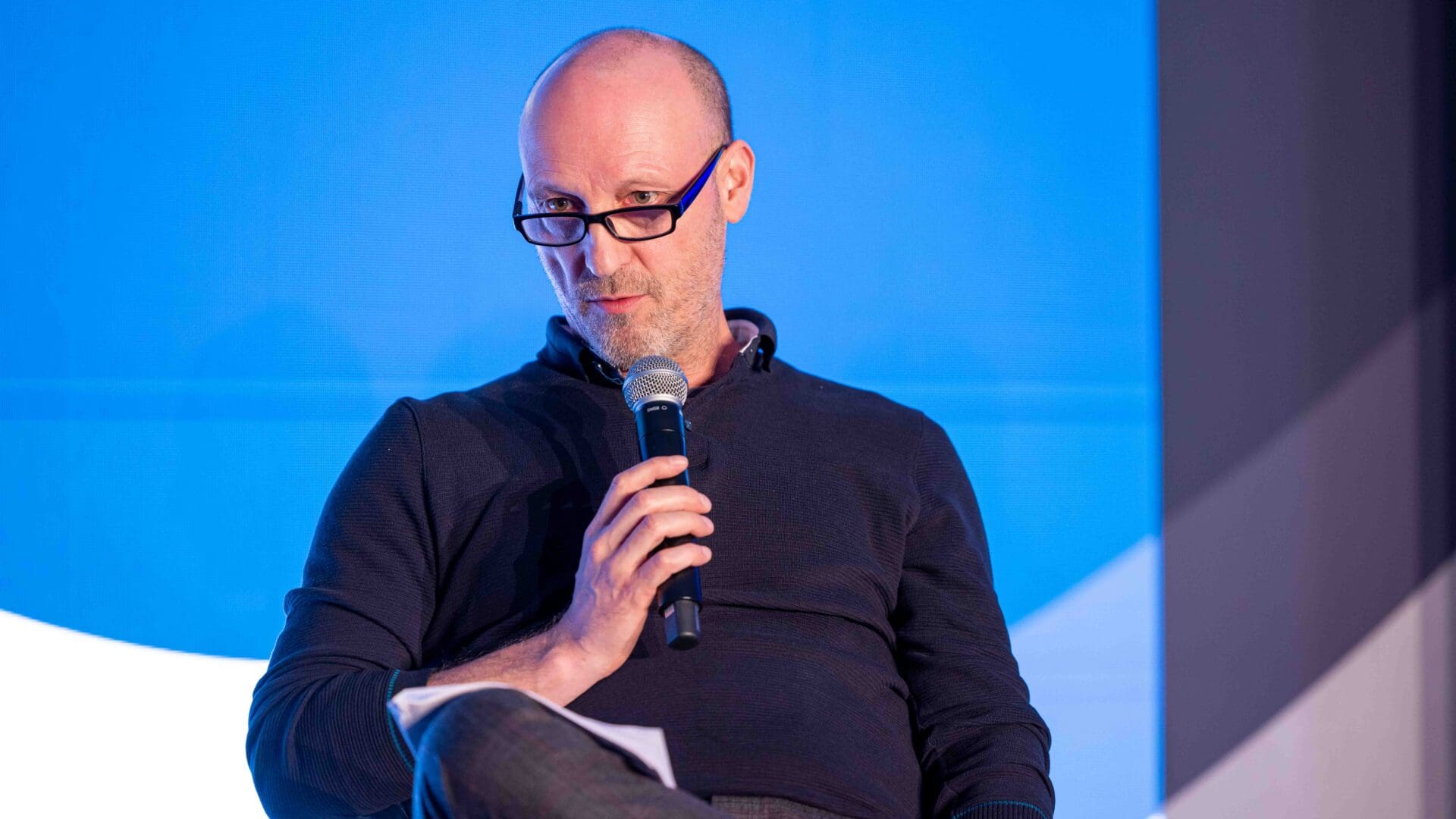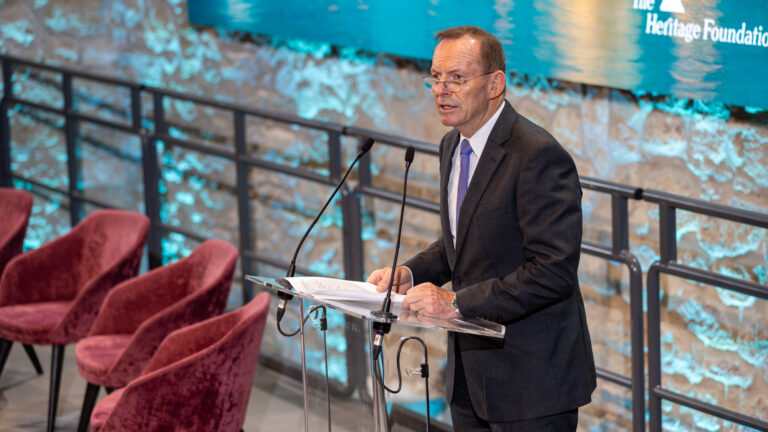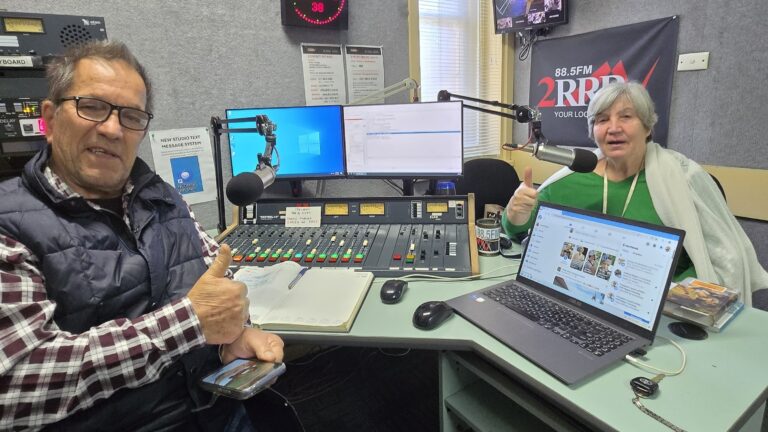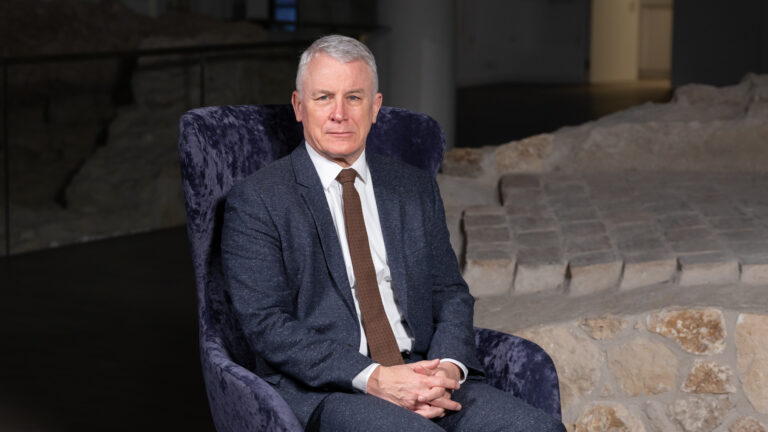Stuart Waiton is a lecturer in sociology and criminology. He writes for several newspapers on issues related to the criminalization and over-regulation of everyday life. His research interests include the politics of antisocial behaviour, the changing nature of politics beyond left and right, and the construction of hate crimes. He is also interested in early intervention and its role in social policy related to crime, as well as the maintenance of order within families. During the MCC Summit on Education, Hungarian Conservative had a chance to talk to him about political activism in education.
***
What is wrong with political activism in education?
It shouldn’t be there. And as schools, in particular, are becoming places now where adult ideas are coming in. One of the things that interested me to start with was I read this document in Scotland, which basically is called something like this Scottish headship. And it’s a pamphlet for head teachers. And it’s very clear: it doesn’t try to hide the fact that it is about social justice. And it uses the term social justice, I think, 16 or 17 times in this pamphlet, which is quite short. And so it’s if you want to be a head teacher in Scotland, you’re less likely to become one unless you have social justice values. That seems wrong, to me, just on a basic level. And it seems to be a very forced kind of value system and agenda that a lot of people don’t necessarily agree with. And it’s at the heart of what Scottish education is now about. And that’s a problem for me, on many levels, not least of all because it’s politics, and politics should be an adult issue.
People are meant to become embarrassed about their past, embarrassed about their country, or embarrassed about even the idea of Western civilization
In the university context, and in most employment places, now you get this term EDI, equality, diversity and inclusion. So it’s a kind of social justice equalities agenda where they, as far as they are concerned, think they’re promoting gender equality and racial equality and things like that. And politically, I’m from the left. And I entirely believe in racial equality, gender equality. I have no problem with gay rights, or issues like that. I do have a problem with the transgender question, which I think is different. But I would never have imagined as a left-wing activist to would walk into schools and start talking or lecturing 12-13-14 year olds on these topics. This would just seem completely wrong to me. And yet, this is what schools are now thinking is a correct way of approaching it. And as I say, it’s not it’s not even a debate. This is something that’s being forced into the curriculum and it is being done everywhere.
The curriculum itself in Scotland, every single subject has to incorporate anti-racism. So you are meant to have anti-racist maths lessons. And it’s a level of stupidity as well: it’s not even that anti-racism is being taught in a sort of sophisticated or complex way. But in a kind of rather infantile, unthinking way. So maths, for example, they try and say that maths has a political and gendered dimension to it. I don’t know if anyone has ever thought about math in terms of colour. I mean, the very idea of it is so nonsensical, and yet this is now part of it. Of course, it then wrecks the history curriculum, because history is increasingly taught in terms of guilt. So the main topics of interest will be something like slavery. And there doesn’t seem to be much interest in the fact that
slavery was only abolished because of Western developments and ideas of democracy and equality.
It’s taught in a way where people are meant to become embarrassed about their past, embarrassed about their country, or embarrassed about even the idea of Western civilization. So I think it degrades education. It’s often done in a very one dimensional and brainless way. And it’s harmful for pupils as well—I think it’s it creates a really negative cynical atmosphere within schools where the idea of knowledge from the past is almost sneered at.
Is there a line between introducing critical thinking and political ideologies into education?
One of the questions that propositions is that there’s a fine line between education and indoctrination. I don’t know if there is a fine line. I think it’s very clear; I think it doesn’t mean that you can’t have different teachers that have got different perspectives. But I think once it becomes the curriculum, and this becomes a framework for a kind of absolute right approach to things, then I’d be thinking it starts to become a clear form of indoctrination. In America, in certain parts of America, they’ve banned things like critical race theory. I wouldn’t ban critical race theory, if you’re going to discuss racism, seriously, which I think you’ll probably only be able to do at the later years of school. And I think, from my perspective, I would take a kind of liberal or collaborative blind approach to race, which is to think you should treat all people equally and not focus on the race. And I think that’s one of the problems with critical race theory—it actually elevates, and almost recreates a racial divide. So I’d be all for critical, open plural education, where you have a proper debate on a subject that is serious and debated.
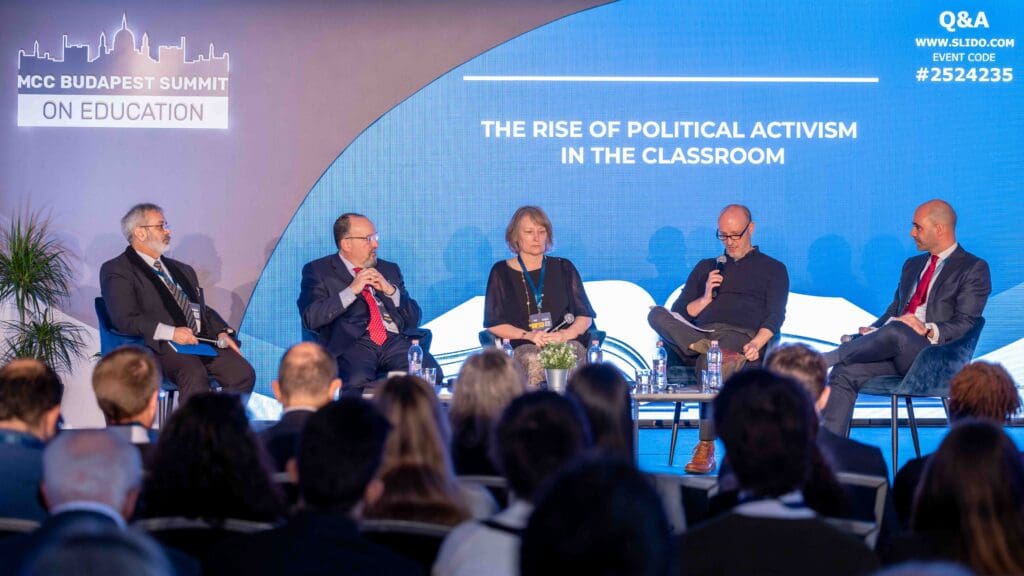
What is your opinion on introducing politics into education, and if it is introduced, when should it be done?
It depends. I suppose it’s such a big subject. I think we have a thing called modern studies, which is where you do have debates on things. But I think it should be taught at a subject level. Because at the minute, the way politics is incorporated, it’s almost like a morality. It’s like an ethic. So the idea that you must be inclusive, must be respectful of identities and so on, it’s almost a form of behaviour. I think it’s entirely legitimate at something like modern studies that you can have a debate about any subject. I think definitely in universities you should be able to debate any subject, to discuss it openly and freely. I’m quite conscious myself that even at universities, something like transgenderism, I suspect 99 per cent of lecturers try and avoid it. And even the issue of race, I think is at times probably too sensitive, and it’s sensitive because now it’s become a type of morality rather than a form of education. It would be actually quite a healthy thing to get back to a situation where we say this is a subject, it’s an ideas thing, this shouldn’t be about feelings. This needs to be about you stepping back from yourself, stepping back from your emotions, and thinking about it as a body of ideas. And I think that would be a very useful thing to do.
Are there any policies or initiatives that you know about that are happening, or that you would like to see introduced into education regarding politics?
I suppose my concern is more in terms of the lack of content, and the lack of focus on content. So
education now is moving away from a system where it is based on knowledge, and I think that’s a problem.
And it’s going to become a bigger and bigger problem, especially in Scotland, because they’ve lost in both schools and universities a sense that actually what education is about is knowledge, and a depth of knowledge, and understanding. It is important is that schools and universities start to understand that their role is really about books, reading, knowing the best that has been thought and said, through history, and using that as a building block to then be able to discuss modern issues, as I think you need that kind of depth and a reasonably good understanding of history as well as an understanding of politics. Certainly, for my subjects in the in the humanities, I think people should know what socialism is, they should know what liberalism is, as they should know what conservatism is; they should have a sense of its history. And they should have a sense of the great moments in history and the great thinkers in history, and how those ideas have developed. And I think that would allow us to have a sort of platform to engage with society. I think that’s what education should be.
As this conference is about the future of education, I have to ask about AI. Can it enhance education? Or is it ultimately devastating in schools?
In an ideal world, I think it could be beneficial, but in the world as is, I think it’s a disaster. I think it because we have a culture that doesn’t understand the importance of reading, and building up a body of knowledge. You’ll find institutions just saying: ‘AI? That’s fine, just use it,’ but the way it will be used, it will be a replacement for reading. So instead of reading these books and expecting that a student read all these books, they say, ‘Oh, we can go into AI, ask AI about all this and AI will give you the answer.’ And then you can use that as a framework for them, for writing your essay and so on. My students are already starting to use AI to basically cheat. Right? This is why I’ve been pushing to try and maintain exams. And as far as I can tell, exams are being banned in more and more institutions, and they’re seen as too much of a pressure students. I think we need to get back to a system where we realize that exams are very important, not least of all because it means that people are not just going on AI. Cheating, not bothering to read or think or learn. As far as AI comes, it can maybe summarize something, I mean that’s okay, but you’d be far better off reading a book. You’re never going to be able to replace that. Unfortunately, I think too many institutions are quite weak in terms of their appreciation of how important books are for developing your ability to understand and think.
Related articles:

